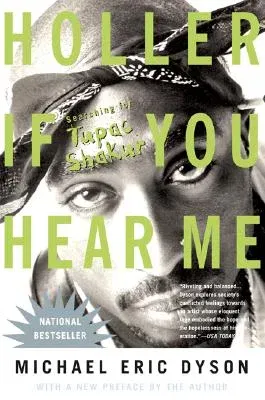Acclaimed for his writings on Malcolm X and Martin Luther King, Jr., as
well as his passionate defense of black youth culture, Michael Eric
Dyson has emerged as the leading African American intellectual of his
generation. Now Dyson turns his attention to one of the most enigmatic
figures of the past decade: the slain hip-hop artist Tupac Shakur. Five
years after his murder, Tupac remains a widely celebrated, deeply loved,
and profoundly controversial icon among black youth. Viewed by many as a
"black James Dean," he has attained cult status partly due to the
posthumous release of several albums, three movies, and a collection of
poetry. But Tupac endures primarily because of the devotion of his loyal
followers, who have immortalized him through tributes, letters, songs,
and celebrations, many in cyberspace. Dyson helps us to understand why a
twenty-five-year-old rapper, activist, poet, actor, and alleged sex
offender looms even larger in death than he did in life. With his
trademark skills of critical thinking and storytelling, Dyson examines
Tupac's hold on black youth, assessing the ways in which different
elements of his persona-thug, confused prophet, fatherless child-are
both vital and destructive. At once deeply personal and sharply
analytical, Dyson's book offers a wholly original way of looking at
Tupac Shakur that will thrill those who already love the artist and
enlighten those who want to understand him.
"In the tradition of jazz saxophonists John Coltrane and Charlie Parker,
Dyson riffs with speed, eloquence, bawdy humor, and startling truths
that have the effect of hitting you like a Mack truck."-San Francisco
Examiner
"Such is the genius of Dyson. He flows freely from the profound to the
profane, from popular culture to classical literature." -- Washington
Post
BR> "A major American thinker and cultural critic." -- Philadelphia
Inquirer
"Among the young black intellectuals to emerge since the demise of the
civil rights movement" -- undoubtedly the most insightful and
thought-provoking is Michael Eric Dyson." -- Manning Marable, Director
of African American Studies, Columbia University

